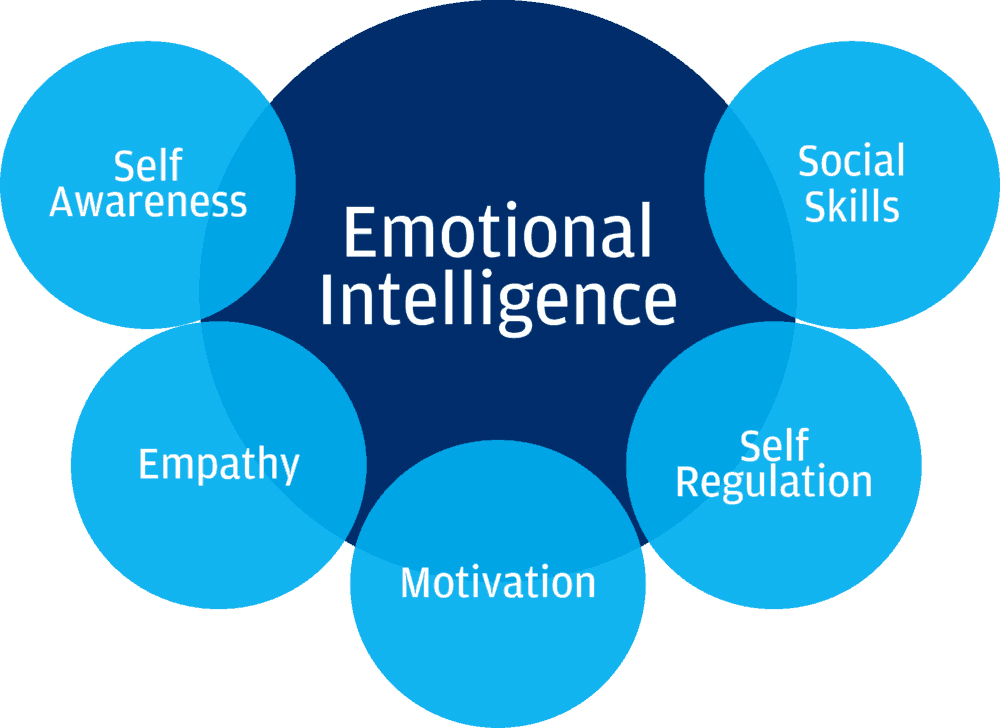In today’s fast-paced and interconnected world, emotional intelligence (EQ) has emerged as a critical factor in personal and professional success. While traditional measures of intelligence, such as IQ, focus on cognitive abilities, emotional intelligence is centered on the ability to recognize, understand, manage, and reason with emotions – both our own and those of others.
What is Emotional Intelligence?
Emotional intelligence is a multifaceted concept that encompasses several key components. First, it involves self-awareness – the ability to recognize and understand one’s own emotions, strengths, weaknesses, and motivations. This self-knowledge serves as the foundation for effective self-management, which allows individuals to regulate their emotions, adapt to changing circumstances, and exercise self-control.
Another crucial aspect of emotional intelligence is social awareness, or the ability to perceive and understand the emotions of others. This empathy and perspective-taking ability enables individuals to build stronger relationships, navigate social situations effectively, and respond appropriately to the needs and concerns of those around them.
Finally, emotional intelligence involves relationship management – the capacity to inspire, influence, and develop others, as well as to manage conflicts and build teams. By leveraging self-awareness, self-management, and social awareness, emotionally intelligent individuals can foster positive connections and achieve collaborative success.
Importance of Emotional Intelligence
Emotional intelligence plays a vital role in both personal and professional domains, offering a multitude of benefits to those who cultivate this essential skill set.
In personal life, emotional intelligence facilitates stronger, more authentic relationships built on trust, empathy, and mutual understanding. Individuals with high emotional intelligence are better equipped to navigate the complexities of interpersonal dynamics, communicate effectively, and resolve conflicts in a constructive manner. This ability to connect with others on a deeper emotional level can lead to greater personal fulfillment, improved mental well-being, and a more satisfying overall life experience.
In the professional realm, emotional intelligence is increasingly recognized as a critical determinant of success. Studies have shown that individuals with high emotional intelligence tend to be more productive, effective leaders, and better team players. They are adept at managing stress, adapting to change, and fostering positive work environments that promote collaboration and innovation.
Moreover, emotional intelligence is particularly valuable in customer-facing roles, where the ability to understand and respond to clients’ emotional needs can significantly impact satisfaction, loyalty, and overall business success. Emotionally intelligent professionals are better equipped to build strong rapport, empathize with customer concerns, and tailor their approach to meet individual needs, leading to enhanced customer experiences and long-term relationships.
Components of Emotional Intelligence
While some individuals may naturally possess higher levels of emotional intelligence, it is a skill that can be developed and refined through conscious effort and practice. Here are some strategies for cultivating emotional intelligence:
1. Self-awareness:
Regularly reflect on your emotions, thoughts, and behaviors. Practice mindfulness and develop the ability to observe your internal experiences without judgment. Seek feedback from trusted sources to gain insights into your strengths, weaknesses, and blind spots.
2. Self-management:
Learn techniques for regulating your emotions, such as deep breathing, meditation, or cognitive reframing. Practice delaying gratification and impulse control, and develop strategies for managing stress and negative emotions effectively.
3. Social awareness:
Actively listen to others, paying attention to both verbal and nonverbal cues. Seek to understand different perspectives and worldviews, and cultivate empathy by putting yourself in others’ shoes.
4. Relationship management:
Develop effective communication skills, including active listening, assertiveness, and conflict resolution. Practice building rapport, influencing others positively, and fostering collaborative environments.
5. Continuous learning:
Embrace a growth mindset and seek opportunities to expand your emotional intelligence through training, workshops, coaching, or self-study. Learn from experiences, both positive and negative, and continuously refine your emotional skills.
Embracing Emotional Intelligence in a Changing World
As we navigate an increasingly complex and interconnected world, emotional intelligence has become an essential skill for personal growth, professional success, and effective collaboration. By developing a deeper understanding of ourselves and others, we can build stronger relationships, communicate more effectively, and navigate challenges with greater resilience and empathy.
In a rapidly evolving workplace, emotionally intelligent individuals are better equipped to adapt to change, manage stress, and foster positive team dynamics. They are also better positioned to connect with diverse stakeholders, bridge cultural divides, and lead with authenticity and inspiration.
Furthermore, as the world grapples with global challenges and societal shifts, emotional intelligence can play a crucial role in fostering greater understanding, compassion, and collaboration across communities and cultures.
Ultimately, emotional intelligence is not just a valuable skill set; it is a pathway to self-awareness, personal fulfillment, and meaningful connections with others. By cultivating this essential capacity, we can unlock our full potential, navigate life’s complexities with greater ease, and create a more harmonious and empathetic world.

